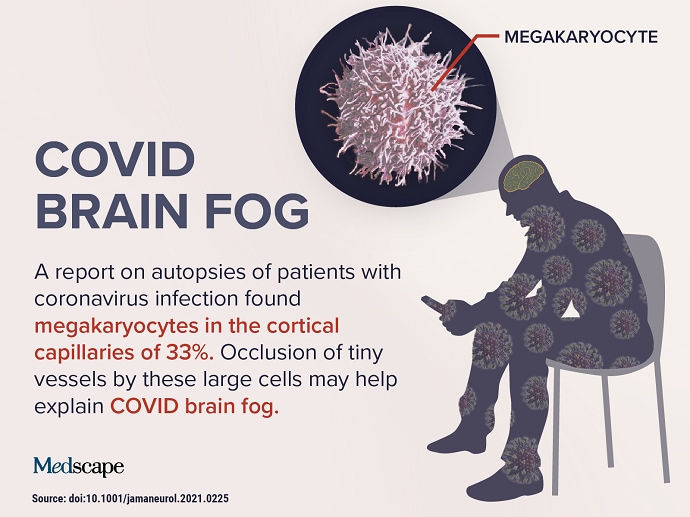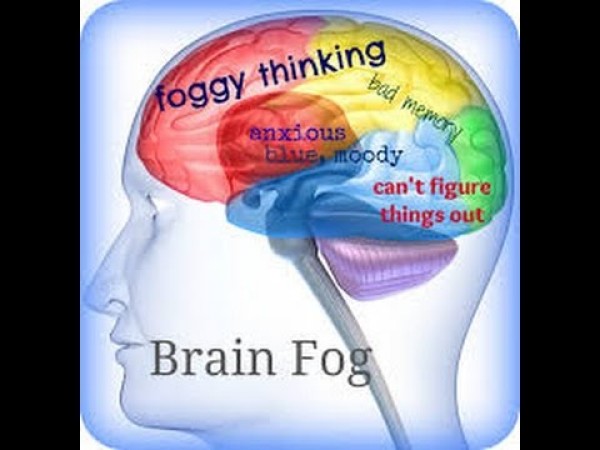

This may be due to contracting the virus, or there may be some psychological factors related to the pandemic which could be maintaining or exacerbating these symptoms. However, some people have reported experiencing symptoms during the COVID-19 pandemic that have lasted weeks or months. It is normal to notice signs of brain fog after a poor night’s sleep or during periods of stress. “Most of what people experience will not be permanent, even if progress is slow and multiple symptoms are involved,” Bernard said.‘Brain fog’ is a common term that describes the experience of thoughts feeling fuzzy, cloudy or sluggish.

#Brain fog meaning covid full
“The medical community hasn’t quite connected all the dots, but some of these persistent memory problems and brain fog could in fact have a real biological basis because an overactive immune system can cause decreased function,” Bernard said.Īlthough more research is needed to understand COVID-19’s full effects on the brain, Bernard is optimistic in one sense. Most of the study participants were not hospitalized because of COVID-19 – meaning even mild cases can lead to long-term effects. In a study published earlier this year, scientists in the United Kingdom studied people who had COVID-19 and found evidence of decreased brain size, tissue damage and a decrease in grey matter (the brain’s outer tissue which is vital to brain function).

Recent research shows physical changes in the brain from COVID-19. However, some patients who develop long-COVID were never ill enough to require hospitalization. Profound COVID-19 illness accompanied by multiple-organ damage and a lengthy hospital stay may be associated with long COVID. Sometimes just the severity of the illness can cause a decline in cognitive ability. Scientists do not yet fully understand what causes brain fog. Brain fog is a non-medical term that encompasses a range of symptoms but can generally be described as decreased ability to focus, as well as feelings of “fuzziness” or confusion. Some people who have COVID-19 experience lingering symptoms such as coughing and fatigue, but others also develop nerve pain and brain fog. If the brain doesn’t receive enough oxygen, brain cells start to die. Blood clots in the brain can also cause a stroke, which can be fatal.Īdditionally, people can suffer brain damage from a lack of oxygen because COVID-19 damaged the lungs or heart-both vital to carrying oxygen around the body. If a blood clot travels to the brain, it can get stuck there and cut off oxygen and nutrient supply, damaging or killing cells. But an overactive immune system can cause unnecessary clots.

“Another consequence of this over-activated immune response is the development of blood clots,” Bernard said.īlood clots are good in theory – they stop bleeding from a cut, for example. In rare cases, COVID-19 virus particles were found in brain tissue or meninges (the protective membranes around the brain), but “by and large, much of COVID-19’s effects on the brain come indirectly from the immune response your body launches against the virus,” Bernard said.įor instance, an extreme immune response can cause a brain-swelling condition called encephalitis, which can lead to headaches, mental confusion and even seizures. Similar to the way COVID-19 can affect other organs, such as the heart and lungs, COVID-19 can have both direct and indirect effects on the brain.Īs a direct effect, one of the big questions researchers want to answer is whether the virus actually enters the brain. The nervous system is made up of two parts: the central nervous system (brain and spinal cord) and the peripheral nervous system, which branches off from the spinal cord and controls your limbs. The brain is the central hub of the nervous system, controlling your movements, thoughts, feelings, organ function and involuntary actions such as breathing and digestion.



 0 kommentar(er)
0 kommentar(er)
